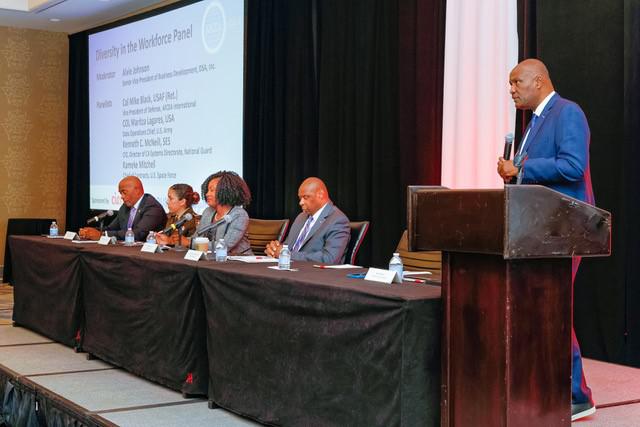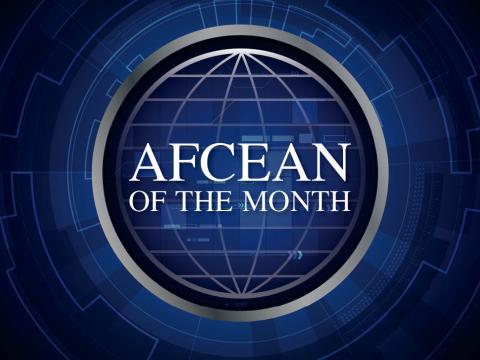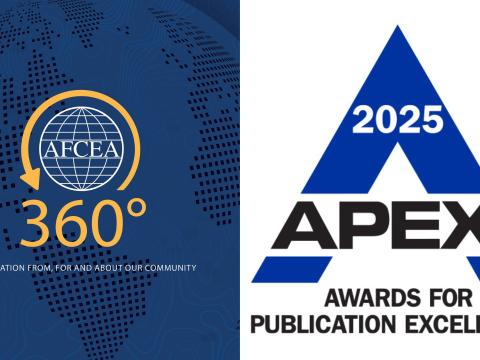Diversity Is the Fabric of America
We all see the world from a different view, with our own specific “baggage.” But ultimately, success is about how you handle the baggage. That’s what Alvie Johnson, senior vice president of business development at DSA and AFCEA regional vice president, said to commence AFCEA IDEA’s Diversity in the Workforce panel event. “I started my military career at Fort Polk, Louisiana—the most integrated community I’ve ever been in my life,” Johnson joked. “I learned a lot there … it helped me define who I am, what I am, and how I would approach the world.”
As the panelists made their introductions and briefly spoke on their individual career journeys, Johnson stood back and said, “This is what diversity looks like. It’s the fabric of America that has a little bit of everything in it.”
Diversity is often viewed as the color of people's skin or nationality. “Inclusion is having different thought patterns in your organization,” said Kenneth C. McNeill, National Guard chief information officer and director of C4 Systems Directorate.
Col. Maritza Lagares, Data Operations chief for the U.S. Army, agreed and spoke on her childhood experience growing up in a white neighborhood and becoming best friends with an African-American young girl who lived down the street. “We were the only two different-looking people,” Lagares said, recalling a time during which adult neighbors were unkind and their children would say things like, “I can’t play with you because my mommy says you’re brown.” The fact is, Lagares said, that not everyone is going to live through a lot of those same experiences. What’s needed from all people, as a collective, is the initiative to listen and learn from those who have come from different backgrounds and have confronted different obstacles.
McNeill, who is the first and only Black Senior Executive Service member in the National Guard, says that success means providing opportunities to others. “The National Guard is made up of 54 states and territories and the District of Columbia; that’s a very diverse organization that has to reflect America, this great country,” McNeill said. “When you walk in my organization … you see a reflection of what this nation looks like. I understand that it takes time to get there.” McNeill highlighted a key aspect of promoting diversity: open-mindedness. “Open the aperture and give the best-qualified individuals the fair process and opportunity to be vetted and hired.”
“We have a ways to go,” McNeill realistically stated. Conversation is imperative, and the voices of those contributing to and serving the nation must be heard. “I’m not going to sit here and say that it’s all good. I’d love to say that. But if you look at the statistical data, we still have work to do. And until you accept that we have work to do, you’ll never get there.”
A key point discussed among the panelists was mentorship. Chief of contracts for the U.S. Space Force Kameke Mitchell spoke about mentors who had guided her toward a better career journey. “I wanted to do a program where you could jump out of airplanes and train with the Navy Seals,” she joked. “[My mentor] said, ‘No … you’re going to go be a legislative fellow, that is better for your career.’” Mitchell grudgingly applied for the legislative fellowship and was accepted into the challenges of year 2020, COVID-19 and the killing of George Floyd at the forefront. In that position, Mitchell had the chance to draft legislation for diversity for the National Defense Authorization Act, an opportunity she credits to her mentors who pushed her outside her comfort zone and led her to a place where she needed to be.
AFCEA’s Vice President for Defense Col. Mike Black, USAF (Ret.), also talked about his mentors, the first of whom is his father. "My dad always reminded me that he was the first Col. Black,” he joked.
The second is the highly respected and well-known Maj. Gen. John W. Maluda, USAF. “If you have ever met him, you will never forget him. He’s loud; he’s boisterous; he’s full of a lot of energy,” Col. Black said. "John Maluda is my mentor, my sponsor and my coach, and I want to emphasize that there is a difference between the three of those. A coach teaches you how to keep your elbow in and follow through. A mentor is somebody who has been there and done that and is going to shorten the learning curve for you. A sponsor is somebody who gives you access.” Gen. Maluda is a rare case who checks all three of those boxes.
Before wrapping up the mentorship discussion, Col. Black noted, “Gen. Maluda does not look like me. He is Caucasian; he’s White. I’m Black, African American. And he is the one who gave me access.”
The panel concluded with one main takeaway: discussions like these are important for the United States and positive change will take a team effort.
AFCEA IDEA will continue hosting panel discussions by collaborating with chapters across the nation. We invite you all to come together and have an open dialogue on what diversity, inclusion and equity mean, and what the nation and industry can do to achieve it.




Comments